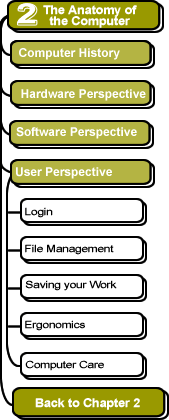

|
Computer
Care - Computer Viruses
Computer viruses are malicious programs that surreptitiously gain access to your computer. They hitch a ride on e-mail or on computer programs downloaded from the Internet. Many viruses will then try to attach itself to files on the computer; if you share those files with others, the virus spreads to their machines as well. The most malicious viruses can delete all of your data files.
How can you prevent catastrophes like this? There are several methods of fighting viruses.
- There are a number of free and commercial programs that detect and remove viruses from computers. They are most effective if they are running on your computer before it becomes infected, but they can often even disinfect a machine that has already caught a virus. These programs need to be updated regularly so that they have information on the latest viruses.
- You can prevent viruses by not using disks or flash drives that might have been compromised, by using extra caution with software downloaded from the Internet, and so forth. Never open an e-mail attachment that you did not expect to receive. This even applies to attachments from friends—they may have been unknowingly infected.
- You could use a operating system (OS) that provides stricter control of your computer. When the OS strictly manages memory, then programs can be prevented from "slipping" into memory without your knowledge. Unix-based operating systems, such as Linux or Sun Solaris, provide this type of tighter control, and Microsoft's Windows XP operating system (with all succeeding updates and patches) has stricter control than previous versions.
![]()
![]()
These pages were written by Steven H. VanderLeest and Jeffrey Nyhoff and edited by Nancy Zylstra
©2005 Calvin University (formerly Calvin College), All Rights Reserved
If you encounter technical errors, contact computing@calvin.edu.